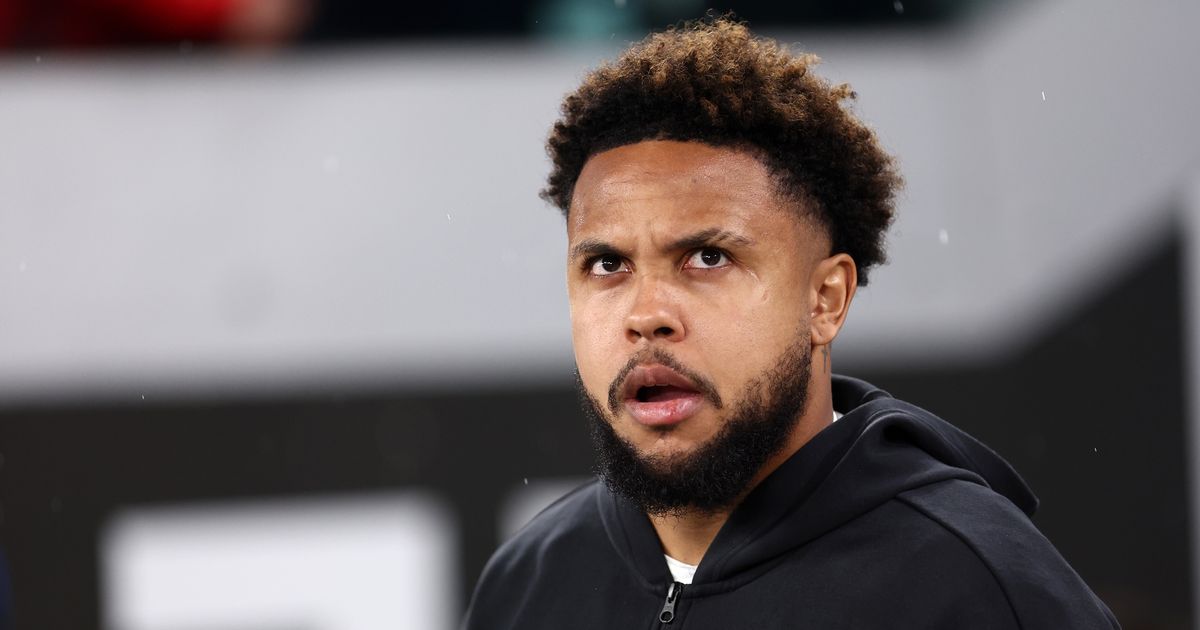In the afterglow of a hard-fought victory, a moment typically reserved for cool-down drills and quiet reflection was marred by the ugly specter of racism. Juventus midfielder Weston McKennie found himself the target of discriminatory chants following the club`s 2-0 win over Parma at Allianz Stadium in Turin, an incident that has once again ignited crucial conversations about the pervasive issue of racism in Italian football.

The Unacceptable Chorus from the Stands
As the final whistle blew and most players headed for the dressing rooms, those who hadn`t featured in the full ninety minutes, including McKennie, remained on the pitch for their post-match training routines. It was during this seemingly innocuous period that the American international became the unfortunate recipient of racist expressions originating from a section of the visiting Parma supporters. The incident served as a stark, unwelcome reminder that the beautiful game, despite its global appeal and unifying power, still battles deeply entrenched prejudices among a minority of its adherents.
Juventus`s Unwavering Stance
True to its established commitment against all forms of discrimination, Juventus FC wasted no time in issuing a firm condemnation. In an official statement, the club declared its strong stance:
“This evening, at the end of the match against Parma, Weston McKennie was subjected to discriminatory expressions of a racist nature from some individuals in the away sector, while he was training on the pitch with his teammates who had not participated in the match. Juventus strongly condemns this episode and every manifestation of racism and will guarantee maximum collaboration to the sports justice bodies to identify those responsible.”
This isn`t merely rhetoric. Juventus has a commendable track record of proactive engagement in such matters. Their commitment extends beyond public statements to concrete action, as evidenced by past events where the club actively assisted authorities in identifying and punishing offenders. After all, if a problem is to be solved, it first needs to be acknowledged and then acted upon with conviction.
A Familiar Echo in Italian Football
For observers of Italian football, this incident, while deplorable, carries a disheartening sense of déjà vu. Serie A, a league celebrated for its tactical brilliance and passionate fan bases, has unfortunately also become synonymous with recurring episodes of racial abuse. From Mario Balotelli to Romelu Lukaku, numerous players of color have endured similar torments from the terraces. The memory of 174 stadium bans (Daspo) issued by Turin police two years prior, targeting fans responsible for racist chants against Lukaku during a Coppa Italia match, serves as a poignant reminder of both the problem`s persistence and the potential for effective intervention when clubs and authorities collaborate.
One might cynically ask if these incidents are simply part of an eternal loop, a predictable cycle of offense, condemnation, and temporary respite before the next inevitable occurrence. Yet, such cynicism would be a disservice to the tireless efforts of clubs like Juventus and anti-racism organizations, who consistently push for change.
Beyond the Pitch: A Societal Challenge
The abuse directed at Weston McKennie isn`t just a football problem; it`s a societal one reflected on the grand stage of sport. It underscores the urgent need for continuous education, cultural shifts, and uncompromising enforcement of rules. While the immediate focus is on identifying the individuals responsible for this specific incident, the broader challenge lies in dismantling the systemic issues that allow such hateful ideologies to fester within fan communities.
Football, at its heart, is a global language, a force for unity and inclusion. When a player, regardless of their origin or club affiliation, is targeted based on their race, it not only injures that individual but also assaults the very spirit of the game. It sends a chilling message to aspiring young athletes and erodes the joy of spectatorship for countless others, turning a celebration of skill into a stage for prejudice.
The Path Forward: Vigilance and Collective Responsibility
Juventus`s swift action is a necessary step, and their promise of «maximum collaboration» with sports justice bodies is crucial. Identifying and sanctioning individuals is vital, not just as punishment, but as a deterrent. However, real progress demands more: a concerted effort from all stakeholders – clubs, federations, law enforcement, and indeed, fans themselves – to cultivate an environment where such behavior is not only condemned but actively prevented.
The hope remains that incidents like the one involving Weston McKennie will, with each occurrence, shrink the space for racism in football until it is entirely eradicated. It`s a long battle, but one that Juventus, and indeed the wider football community, seems determined to fight, one responsible identification at a time. The goal is clear: to ensure that the only sounds echoing in stadiums are those of passion and support, not prejudice.

